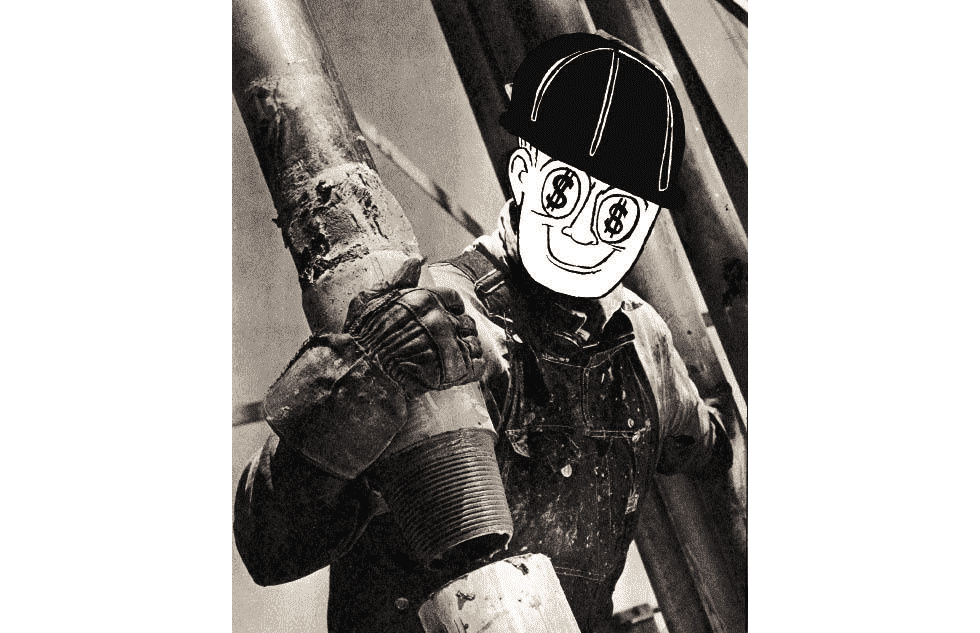When sanctions were imposed on Russia there was a big exception: Europe was still buying and paying for oil – leading to a bizarre situation. The West was doing everything it could to help Ukraine while still sending Putin hundreds of millions of dollars a day. But how much was that revenue worth to the Kremlin?
As sanctions began to hit Russia, the price of Brent crude (the oil benchmark) soared to $130 a barrel, the highest since the 2008 financial crisis: an increase of over 90 per cent. It’s fallen since then but today it’s still sitting between $107 and $115 dollars a barrel – well above where it had been weeks ago.
But are these price rises making money for the Kremlin? Before Russian troops invaded, the oil price was around $90 a barrel and Russia was estimated to be making some $350 million daily from exporting five million barrels every day. Assuming an average increase of one third in the oil price they could now be making between $450-500 million per day. Even at the slightly lower price oil now sits – $114 per barrel – that’s still some $400 million per day fuelling Russia’s war effort.
Experts think it’s unlikely Russia’s oil revenues will actually have seen a substantial rise
But can we afford to take less Russian oil? Already the price hike is hurting, most visibly in petrol station forecourts. Last week, the average price of petrol was £1.60 per litre (up 30 per cent on a year earlier), some of the highest prices ever recorded. Experts speaking to the Treasury select committee think prices could reach even higher at £3 per litre, and there is pressure on the Chancellor to cut fuel duty at Wednesday’s spring statement.
The US and Britain have said they’re not taking Russian oil, but Russia accounts for just 3 per cent of UK imports and America is now self-sufficient in energy. Half of exported Russian oil finds its way to Europe, with another 42 per cent going to Asia. So it’s a European wide import ban that would hit the Kremlin hardest.
Today the EU debated doing just that. The bloc has already committed to its reliance on Russian gas by two-thirds this year (it hasn’t said how), but this afternoon European foreign ministers met to discuss dropping oil imports too. There was disagreement. The Irish foreign minister Simon Covney said: ‘Looking at the extent of the destruction in Ukraine right now, it’s very hard to make the case that we shouldn’t be moving in on the energy sector.’ But Germany felt it wasn’t practical, with their representative saying: ‘The question of an oil embargo is not a question of whether we want or don’t want (it) but a question of how much we depend on oil.’ So it seems oil will keep flowing to Europe and dollars to Moscow.
But legally enforced sanctions and embargoes aren’t the only thing capable of hurting the Kremlin. Russian oil could be hit by a ‘reputational discount’ being applied by market traders. Russia’s oil product is Urals crude, a blend of heavier and lighter oils, and it has always been sold at a slight discount when compared to Brent – but usually just one or two dollars cheaper. It’s now trading a whole $30 per barrel cheaper than Brent on average, with some even larger discounts unable to find buyers. Embargo or not, trading houses are turning their nose up at Russian oil.
So given the discount, and with countries beginning to wean themselves of Russian oil, experts think it’s unlikely Russia’s oil revenues will actually have seen a substantial rise.
Putin’s real money spinner has been natural gas, which have been hitting all time highs. The market reacted and prices are coming down, but UK natural gas is still five times higher than it was this time last year and European natural gas is nearly seven times higher. This is netting Putin – according to some estimates – some $720 million dollars per day, up from $200 per day in previous years.
Now that could be changing too, and not because the taps are being turned off. This evening, the European benchmark gas product (TTF) closed below €100 per Megawatt hour for the first time since the end of February. A fortnight ago it closed at nearly €230. The fall in price is partly due to warmer weather, but it’s also because the gas from Russia is still flowing and more: in recent days Russian gas exporters have boasted about meeting European demand.
The war might be far from ending. Putin hasn’t (yet) used chemical weapons raising the question: what if he did? How could the G7 increase sanctions further? Stopping sending hundreds of millions of dollars every day to Russia for oil would inflict huge pain on the Kremlin – but the truth is that Europe is still nowhere near being able to go cold turkey. Buying Russian oil may well be financing Putin’s war machine – but as it stands, Europe has no other choice.







Comments